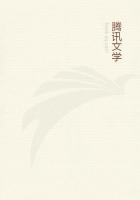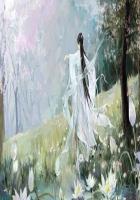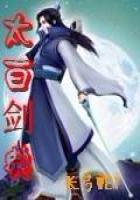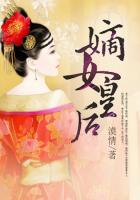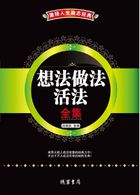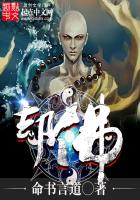Walpole's Letters are generally considered as his best performances, and, we think, with reason. His faults are far less offensive to us in his correspondence than in his books. His wild, absurd, and ever-changing opinions about men and things are easily pardoned in familiar letters. His bitter, scoffing, depreciating disposition does not show itself in so unmitigated a manner as in his Memoirs. A writer of letters must in general be civil and friendly to his correspondent at least, if to no other person.
He loved letter-writing, and had evidently, studied it as an art.
It was, in truth, the very kind of writing for such a man, for a man very ambitious to rank among wits, yet nervously afraid that, while obtaining the reputation of a wit, he might lose caste as a gentleman. There was nothing vulgar in writing a letter. Not even Ensign Northerton, not even the Captain described in Hamilton's Bawn,--and Walpole, though the author of many quartos, had some feelings in common with those gallant officers,--would have denied that a gentleman might sometimes correspond with a friend.
Whether Walpole bestowed much labour on the composition of his letters, it is impossible to judge from internal evidence. There are passages which seem perfectly unstudied. But the appearance of ease may be the effect of labour. There are passages which have a very artificial air. But they may have been produced without effort by a mind of which the natural ingenuity had been improved into morbid quickness by constant exercise. We are never sure that we see him as he was. We are never sure that what appears to be nature is not disguised art. We are never sure that what appears to be art is not merely habit which has become second nature.
In wit and animation the present collection is not superior to those which have preceded it. But it has one great advantage over them all. It forms a connected whole, a regular journal of what appeared to Walpole the most important transactions of the last twenty years of George the Second's reign. It furnishes much new information concerning the history of that time, the portion of English history of which common readers know the least.
The earlier letters contain the most lively and interesting account which we possess of that "great Walpolean battle," to use the words of Junius, which terminated in the retirement of Sir Robert. Horace entered the House of Commons just in time to witness the last desperate struggle which his father, surrounded by enemies and traitors, maintained, with a spirit as brave as that of the column of Fontenoy, first for victory, and then for honourable retreat. Horace was, of course, on the side of his family. Lord Dover seems to have been enthusiastic on the same side, and goes so far as to call Sir Robert "the glory of the Whigs."
Sir Robert deserved this high eulogium, we think, as little as he deserved the abusive epithets which have often been coupled with his name. A fair character of him still remains to be drawn; and, whenever it shall be drawn, it will be equally unlike the portrait by Coxe and the portrait by Smollett.
He had, undoubtedly, great talents and great virtues. He was not, indeed, like the leaders of the party which opposed his government, a brilliant orator. He was not a profound scholar, like Carteret, or a wit and a fine gentleman, like Chesterfield.
In all these respects his deficiencies were remarkable. His literature consisted of a scrap or two of Horace and an anecdote or two from the end of the Dictionary. His knowledge of history was so limited that, in the great debate on the Excise Bill, he was forced to ask Attorney-General Yorke who Empson and Dudley were. His manners were a little too coarse and boisterous even for that age of Westerns and Topehalls. When he ceased to talk of politics, he could talk of nothing but women and he dilated on his favourite theme with a freedom which shocked even that plain-spoken generation, and which was quite unsuited to his age and station. The noisy revelry of his summer festivities at Houghton gave much scandal to grave people, and annually drove his kinsman and colleague, Lord Townshend, from the neighbouring mansion of Rainham.
But, however ignorant Walpole might be of general history and of general literature, he was better acquainted than any man of his day with what it concerned him most to know, mankind, the English nation, the Court, the House of Commons, and the Treasury. Of foreign affairs he knew little; but his judgment was so good that his little knowledge went very far. He was an excellent parliamentary debater, an excellent parliamentary tactician, an excellent man of business. No man ever brought more industry or more method to the transacting of affairs. No minister in his time did so much; yet no minister had so much leisure.
He was a good-natured man who had during thirty years seen nothing but the worst parts of human nature in other men. He was familiar with the malice of kind people, and the perfidy of honourable people. Proud men had licked the dust before him.
Patriots had begged him to come up to the price of their puffed and advertised integrity. He said after his fall that it was a dangerous thing to be a minister, that there were few minds which would not be injured by the constant spectacle of meanness and depravity. To his honour it must be confessed that few minds have come out of such a trial so little damaged in the most important parts. He retired, after more than twenty years of supreme power, with a temper not soured, with a heart not hardened, with simple tastes, with frank manners, and with a capacity for friendship.

